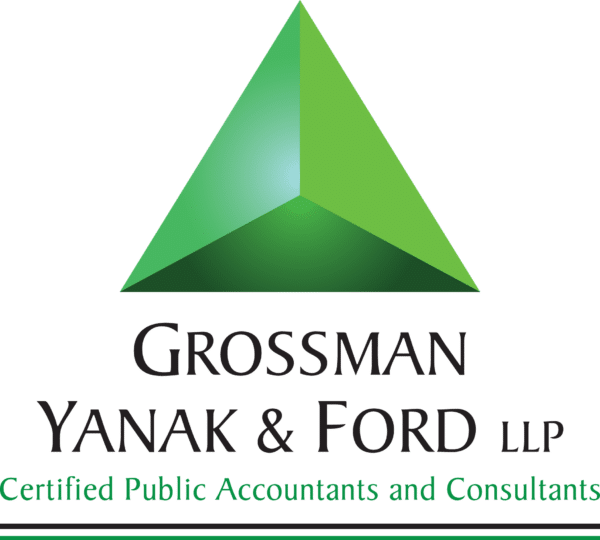This post provides a brief overview of the new mileage rates announced by the IRS as well as changes to the clean vehicle tax credit made by the recently enacted Inflation Reduction Act.
Standard Mileage Rates
The IRS announced updated optional standard mileage rates for taxpayers to use in computing the deductible costs of operating an automobile for business, charitable, medical, or moving expense purposes. Taxpayers can also choose to calculate the actual costs of using their vehicle rather than using the standard mileage rates.
IRS Notice 2023-03 increased the optional standard mileage rate used to calculate the deductible costs of operating a vehicle for business.to 65.5 cents per mile driven, up 3 cents from a rare midyear increase in 2022 (increased from $0.585 to $0.625). Other standard mileage rates included in the Notice include the following:
- $0.22 per mile driven for medical or moving purposes (active-duty members of armed forces)
- $0.14 per mile driven in service of charitable organizations
- $0.28 per mile portion of standard mileage rate treated as depreciation for purpose of basis reductions
These rates are effective as of January 1, 2023, and apply to gasoline and diesel-powered vehicles as well as electric and hybrid-electric automobiles. See more tax saving opportunities related to electric vehicles below.
Clean Vehicle Federal Tax Credit
Some taxpayers who purchased a new plug-in electric vehicle (EV) or fuel cell vehicle (FCV) in 2023 or after may qualify for a clean vehicle tax credit, which can be worth up to $7,500. To qualify, the taxpayer must buy the vehicle for his/her own use rather than for resale. Additionally, the vehicle must be used primarily in the United States.
To claim this credit, the taxpayer’s modified adjusted gross income (AGI) may not exceed the following thresholds: $300,000 for married couples filing jointly; $225,000 for heads of households; and $150,000 for all other filers. For qualification purposes, modified AGI can be used for the year the taxpayer takes delivery of the vehicle or the year before, whichever is less. As long as modified AGI is below the threshold in one of the two years, the taxpayer can claim the credit. However, the credit is nonrefundable, so the taxpayer cannot get back more on the credit than is owed in taxes. Excess credit cannot be applied to future tax years. Taxpayers can claim this credit in 2023 by filing form 8936 with their tax returns.
In order to qualify for the clean vehicle tax credit, the vehicle must meet the following criteria:
- Have a battery capacity of at least 7 kilowatt hours
- Have a gross vehicle weight rating of less than 14,000 pounds
- Be made by a qualifying manufacturer (List on IRS website)
- Undergo final assembly in North America (EVs with Final Assembly in North America)
The sale qualifies only if the vehicle purchased is new (see changes/exceptions under “Used Clean Vehicle Credit” below), and the seller reports required information to you at the time of sale and to the IRS. Sellers are required to report the taxpayer’s name and identification number to the IRS in order for him/her to be eligible to claim the credit.
In addition, the vehicle’s manufacturer suggested retail price (MSRP) cannot exceed $80,000 for vans, SUVs , and pickup trucks or $55,000 for any other vehicle. To confirm the type of vehicle, see the IRS website (Qualified Vehicles and Manufacturers).
Changes to the Clean Vehicle Federal Tax Credit for 2023 Under the IRA
The Inflation Reduction Act of 2022 (IRA) extends, modifies, and expands the clean vehicle credit (which includes both plug-in electric vehicles and fuel cell vehicles) for vehicles purchased from 2023 to 2032. One of the most important changes was the extension of the time to qualify for this credit. Originally, the $7,500 credit was due to expire in 2023, but the IRA extended it through December 2032.
The maximum amount of the credit remains at $7,500, but includes limitations based on the purchaser’s income, as well as the vehicle’s MSRP. The IRA also provides a new credit for up to 30% of the basis of a qualified commercial clean vehicle acquired after 2022 and before 2033
Another big change to this credit is to the removal of the cap for automakers. Under prior law, vehicle producers were capped for this credit at the first 200,000 EVs sold. Under the IRA, purchasers of GM, Tesla, and Toyota vehicles, are once again eligible for the credit. However, the new credit requires final assembly of the vehicle in North America, and also phases in sourcing requirements for critical components of the vehicle and battery system.
Used Clean Vehicle Credit
The IRA also revised the terms of the credit related to used EVs. A credit equal to 30% of the sale price (up to $4,000) is now being offered for qualifying customers who purchase qualifying vehicles. Note, that a used vehicle can qualify for the tax credit only once in its lifetime.
To qualify, customers must:
- Be an individual (no businesses) who bought the vehicle for use and not for resale
- Not be the original owner
- Not be claimed as a dependent on another person’s tax return
- Not have claimed another used clean vehicle credit in the three years before the EV purchase date
- Have a modified AGI that does not exceed the thresholds: $75,000 for individuals, $112,500 for heads of households, and $150,000 for joint filers
To qualify, the EV must:
- Have a sale price of $25,000 or less
- Have a model year at least two years earlier than the calendar year when it is purchased (i.e., a vehicle purchased in 2023 would need to be model year of 2021 or older)
- Have not already been transferred to a qualified buyer (after August 16, 2022)
- Have a gross vehicle weight rating of less than 14,000 pounds
- Be an eligible FCV or plug-in EV with a battery capacity of least 7 kilowatt hours (kWh)
- Be for use primarily in the United States
- Be purchased from a dealer that reports the required information to the buyer at the time of sale and to the IRS
Closing Thoughts
More details about the new clean vehicle credits can be found at: Frequently asked questions related to new, previously-owned and qualified commercial clean vehicle credits (irs.gov)
If you have additional vehicle-related questions or need assistance with other tax issues, please contact your GYF Executive or call the office at 412-338-9300.








